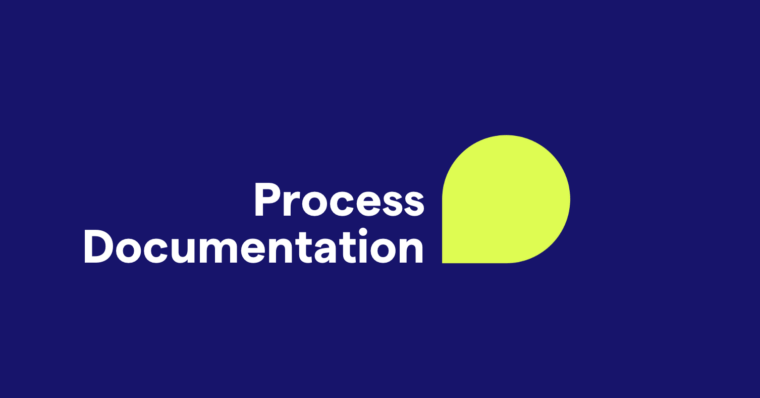
When someone in your life retires, sending them a message wishing them well as they approach this major milestone is customary. But to write an effective retirement message, you have to know the etiquette behind sending them. Here’s everything you need to know about writing a thoughtful retirement message.
What is a retirement message?
A retirement message is a note you write to someone who is retiring soon. It’s a way to:
- Say congratulations for reaching this milestone
- Provide well-wishes as they prepare to leave their job
- Show they’ll be missed at work
- Express appreciation for their contributions
These messages should be thoughtful and respectful. When done right, they can help give the reader a sense of accomplishment and make them feel supported as they embark on this next chapter of life.
Understand the emotions behind retirement
Retirement can come with a lot of mixed emotions, from the joys of being able to dedicate your days to nonwork hobbies, having seven-day weekends, and the sense of accomplishment from decades spent in a career, to the potential difficulties posed by such a big life change and not being able to see your coworkers anymore. In some ways, retirement represents the closing of a very important chapter in your life. That means, even if you’re excited for retirement and all that comes with it, taking that step can still be bittersweet.
Kind wishes over the all-hands Slack channel don’t necessarily have to be that deep. (A simple “congrats on your retirement” may do the job in that case.) But for a personalized retirement message to someone who played an important role in your working life, it’s important to recognize the complicated feelings that come along with retirement. Doing so is the first step to writing a message that makes a significant impression on the person who is retiring. It tells the recipient that you understand what they’re going through, making your message more genuine and impactful.
Strike the right tone
In written messages, tone is everything. And that applies to retirement messages, too. There is quite a bit of room for different tones here, but the key is tailoring it to the relationship you had with the retiree. For example, if the message is for a boss or someone with whom you may not have worked with closely, a more formal tone may be appropriate. But a casual, heartfelt, or even humorous tone can be employed for a coworker you consider a friend.
Elements of a retirement message
There are three key features that all retirement messages should include. First, it should acknowledge the retiree’s career in some way. That could mean noting the length of their career, highlighting special moments from their career, or simply saying that you admire the career they’ve built. Second, it’s usually best to end with well-wishes for their future. And third, as a general rule, retirement messages should be at least a few sentences to a paragraph long. (The closer the relationship, the lengthier the message can be.)
Beyond that, there are several other key elements you may want to include in a retirement message:
- Personal anecdotes: Bringing up specific relevant anecdotes with or about the person you’re writing to is a great way to ensure they understand the sincerity of your well-wishes. It can also show them how much they’ve impacted your life or inspired you.
- Memories with the soon-to-be retiree: If you worked closely with the recipient, this is the perfect time to reminisce about your time together. These should be the memories that you want them to take with them into retirement.
- An apt quotation: If you find a quote that’s particularly relevant for the moment, adding it to your retirement message can help you express your feelings.
Make it personal and memorable
A good retirement message will cover the basics, but a great one will be both personal and memorable for the recipient. After all, this message is supposed to be something for the recipient to carry with them as they step into the next chapter of their life.
If you know the person well, it should be easier to make the message more personal. In that case, you may have personal experience to draw upon, such as inside jokes, or an anecdote about how they’ve impacted your life or career. Another option here is to talk about a notable achievement the retiree has accomplished. Structurally, this can follow the traditional “congratulations” opener and precede your retirement well-wishes.
There are many ways in which you can deliver a retirement message, such as with an email, a Slack message, or a card. But if you prefer a more creative approach, you can also use go the less traditional route by creating a social media post or even a speech, if appropriate.
Offer inspiration for the next chapter
Stepping into retired life, and out of working life (which, for most, spans decades), isn’t always as easy as it would seem. It impacts everything from your daily routine to your social life. So offering a few words of inspiration in a retirement message to celebrate this next step is usually more than welcome.
This can include quotes about handling big life changes to thoughtful wishes for their retired life. Here are a few examples of inspirational quotes to help get you started:
- “Let us live for each other and for happiness; let us seek peace in our dear home, near the inland murmur of streams.” (Mary Shelley)
- “I’m really enjoying my retirement. I get to sleep in every day. I do crossword puzzles and eat cake.” (Derek Landy)
- “Taking the initiative to enjoy what comes, to share it with others, and to make a difference in whatever you do will be the ultimate yardstick for determining the success of your retirement.” (Eldon Henson)
Dos and don’ts in retirement messages
Retirement messages have a few rules you should abide by:
Do: Personalize the message to the recipient.
Don’t: Use words or phrases with negative connotations about aging.
Do: Keep it short if you aren’t close with the person who’s retiring.
Don’t: Include overly personal jokes.
Do: Work in personal anecdotes that can uplift the reader.
Don’t: Include language that isn’t work-appropriate.
Do: Tailor your tone to the positive.
Don’t: Make it about you.
Retirement message templates and examples
What you say in a retirement message or letter depends on the context. Here are examples based on different relationships with the future retiree:
Colleague
Congratulations on your retirement! I’ll miss you at [location/situation]. Best wishes for all that your future holds!
Your career is truly an inspiration to me. Congratulations, and may your retirement be everything you hope it will be. Cheers!
Congrats on reaching this huge milestone! [Personal anecdote/quote.] Here’s to all the possibilities retirement will bring!
Boss
[Name], your leadership and support have meant so much to me over the years. Congratulations on your retirement!
Thank you so much for your mentorship. I wish you all the best in this well-deserved next chapter. Congrats,, boss!
Congrats, boss! Your contributions to [field/profession] are such an inspiration. You will be missed at [situation].
Family member
Congrats on retiring—I’m so happy for you! It’s so gratifying to see all of your hard work over the years pay off. Can’t wait for the party!
It may be hard to imagine yourself in retirement, but don’t worry: You’ll get the hang of leisure in no time! Congrats!
The hardest part of being retired is figuring out how to spend all of your hard-earned savings, and I’m happy to lend my services! (May I suggest [X]?) Happy retirement, [Name]!
Friend
I can’t believe you’re retiring! Can’t wait to hear what seven-day weekends are like at our next coffee date. Congrats!
Welcome to the retiree club! A few rules you should know: Always say yes to fun, forget the clock, and be sure to make time for friends (a.k.a. me). Congratulations, I’m so happy for you!
Retirement message FAQs
How long should a retirement message be?
As a general rule, it should be at least a few sentences. But it can be longer, depending on the closeness of the relationship.
Is humor appropriate in a retirement message?
It can be, especially if you know the person well and it fits with the nature of the relationship.
How can I make a retirement message heartfelt if I’m not a close acquaintance?
In that case, you may choose to focus on noting how they’ve impacted your life or career, even if it’s simply having provided inspiration.
What are some unique ways to present a retirement message?
You may choose to use an alternative format, such as a speech or a social media post, and include a gift with your message to spruce things up.
Can I include offers of future help or support in a retirement message?
Yes, if it’s appropriate for the nature of the relationship.






